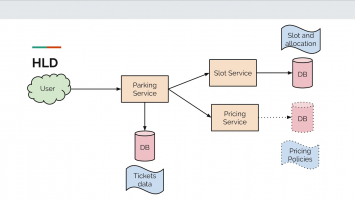Top 10 Best Online International Law Courses
In today’s increasingly connected economy, legal problems now span countries and frequently involve regional and international treaties and laws, so a career ... read more...in international law can help aspiring lawyers understand the legal world from a global perspective. In addition, you can begin your career in international law by enrolling in online courses in international law. Here are the best online international law courses to get you started.
-
This course's author previously competed in the Washington, D.C., USA, edition of the Jessup International Moot Court Competition in 1979.
Students interested in competing in international law moot court competitions should take this course. This course enables students who are interested in international law moot court competitions to prepare for the competition in a credible manner and will give them the skills necessary to address any problems that may arise. In the competition, the students will perform better, and hopefully they will win.
This course's first lecture goes into detail about conflict management, dispute resolution, and the mechanisms for delivering justice. The distinctions between a real court and a moot court are explained in the second lecture of this course. This course's third lecture discusses the distinctions between municipal law courts and international law tribunals and courts as well as the hard and soft laws that are applicable in each of those venues. Time management before and during arguments is a topic covered in the fourth lecture of this course. This course's fifth lecture covers issues and initial objections. The author offers advice on writing better memorials in the sixth and last lecture of this course.
Who this course is for:
- Anyone interested in Participating in International Moot Court Competitions
- Law Students interested in participating in International Moot Court Competitions
Requirements
- Student of LL.B or LL.M
- Interest in International law
- Interest in Mooting
Course ratings: 5.0/5
Enroll here: https://www.udemy.com/course/preparatory-course-for-jessupinternational-law-moot-court-competitions/

law.berkeley.edu 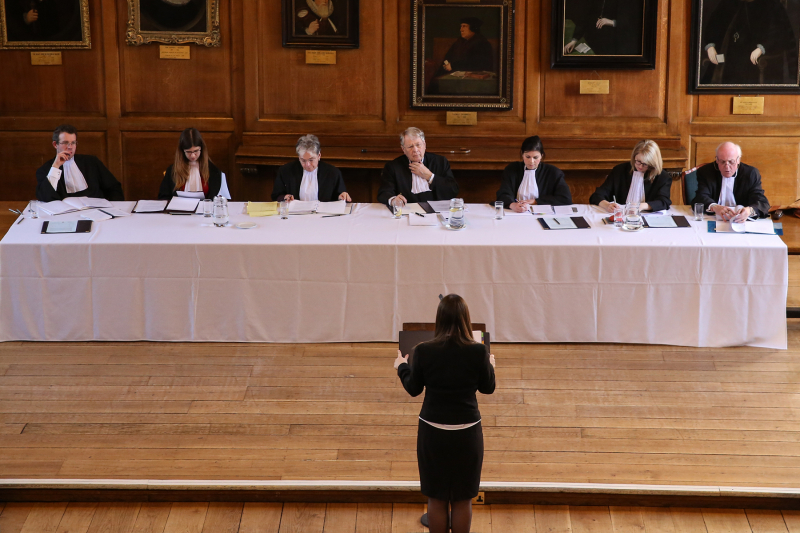
law.ox.ac.uk -
No area of law is more crucial to maintaining global peace and security than international criminal law, from the Nuremberg Trial to the case against Saddam Hussein, from the prosecution of Al-Qaeda terrorists to the trial of Somali pirates. Students will learn the fundamentals of international criminal law and policy in this course, which is being taught by one of the top authorities in the field worldwide. You will examine the outlines of international crimes like genocide, war crimes, terrorism, and piracy in this course. You will look at particular forms of global criminal responsibility and specialized defenses. You will also examine the difficulties in securing the accused's custody and preserving order in the courtroom.
Eight different content units make up this course. A one-hour video lecture, a reading assignment online, and one or more role-playing exercises to encourage online discussion make up each unit. Additionally, there are ten-question True/False Final Exams, a diagnostic midterm exam with ten multiple-choice questions, and in-video enrichment quizzes for each unit of the course.
This course offers:
- Flexible deadlines: Reset deadlines based on your availability.
- Shareable certificate: Get a Certificate when you complete
- 100% online
- Approx. 13 hours to finish
- Subtitles: Arabic, French, Portuguese (European), Italian, Vietnamese, German, Russian, English, Spanish
Course ratings: 4.8/5
Enroll here: https://www.coursera.org/learn/international-criminal-law

istockphoto.com 
internationallawsummits.org -
“International Humanitarian Law in Theory and Practice” is the first MOOC of the Kalshoven-Gieskes Forum on International Humanitarian Law, which is the platform within the Grotius Centre for International Legal Studies of Leiden University for the research, teaching and dissemination of international humanitarian law (IHL).
Prof. Robert Heinsch, Dr. Giulia Pinzauti, and Dr. Emma Irving will provide you with a thorough understanding of the laws governing armed conflict in this course, which aims to lessen suffering among combatants. The why and how of IHL will be examined, then the various forms of conflict. You will quickly learn which laws govern the occupation of the West Bank, military intervention in Ukraine, and the civil war in Syria.
You will gain knowledge about how hostilities should be conducted in this course. Which weapons can combatants and other fighters use? And in military operations, who should never be a target? You will also examine the idea of protected persons and learn how IHL provides protection for the sick and injured, medical personnel, prisoners of war, minors, journalists, and other people who are not currently fighting. At the conclusion of this course, you will learn about the various implementation and enforcement strategies designed to promote greater respect for IHL. You are encouraged to critically consider the effectiveness of IHL here.
Throughout this course you will benefit from a mix of theory and practice, which is at the heart of the vision and mandate of the Kalshoven-Gieskes Forum. You can participate for instance in an ongoing case study where drones are flying over the fictitious country Arfula, and detainees are locked up in tiny cells. Or, you can join the discussions about IHL success stories and the major IHL challenges people face today, with distinguished speakers from the International Committee of the Red Cross and US Naval War College!
This course offers:
- Flexible deadlines: Reset deadlines based on your availability.
- Shareable certificate: Get a Certificate when you complete
- 100% online
- Beginner level: Basic understanding of (international) law is helpful.
- Approx. 19 hours to finish
- Subtitles: French, Portuguese (European), Russian, English, Spanish
Course ratings: 4.8/5
Enroll here: https://www.coursera.org/learn/international-humanitarian-law
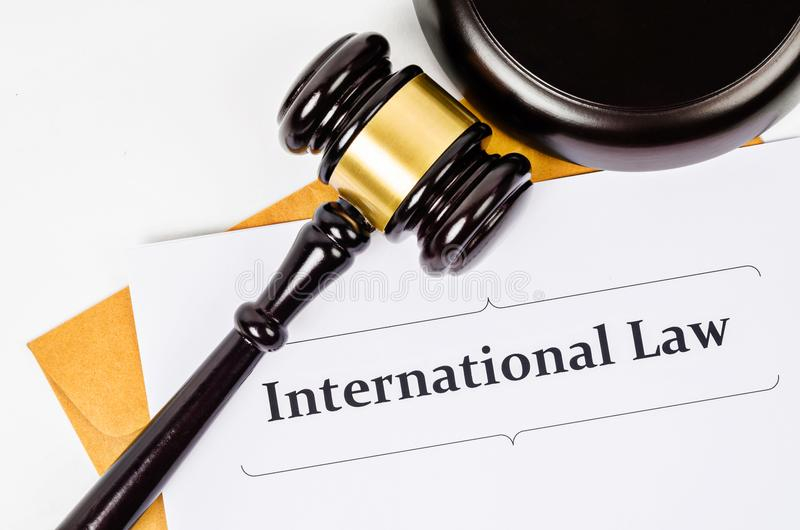
dreamstime.com 
biicl.org -
The Hague's international courts and tribunals are described in detail in International Law in Action, which also examines how these bodies deal with current issues. You will investigate the function of these courts and tribunals and their potential to advance global justice on the basis of a few carefully chosen cases and through interviews with judges and attorneys.
The course's first module will look at the differences between judicial settlement and other, more political dispute resolution methods like negotiation and mediation. It provides a succinct historical overview and introduces The Hague-based judicial and arbitral institutions. You will discover more about the roles played by these courts and tribunals, as well as some of the difficulties and opportunities they may encounter, in the remaining modules. All of these modules are connected by three overarching themes: (i) the relationship between politics and the law; (ii) the continuing importance of State consent; and (iii) the capacity of international courts and tribunals to uphold universal values.
You have the chance to learn more about the roles and characteristics of the courts and tribunals operating in The Hague through this course. You will become more accustomed to each court or tribunal. You will grow to understand their limitations and have realistic expectations of their ability to solve modern issues. You can also talk about some of their most well-known cases.
This course is definitely for you if you'd like to gain a better understanding of how international law is applied in The Hague.
This course offers:
- Flexible deadlines: Reset deadlines based on your availability.
- Shareable certificate: Get a Certificate when you complete
- 100% online
- Approx. 18 hours to finish
- Subtitles: French, Portuguese (European), Dutch, Russian, English, Spanish
Course ratings: 4.8/5
Enroll here: https://www.coursera.org/learn/international-law-in-action

unitar.org 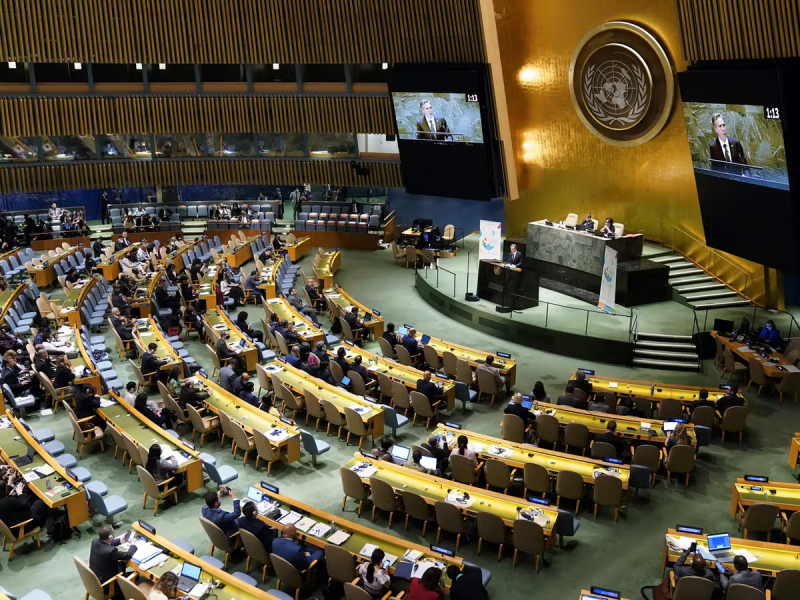
theconversation.com -
The third course in Leiden University's International Law in Action series is titled "The Arbitration of International Disputes." This third course examines the key features of international arbitration, one of the most popular ways to resolve disputes internationally. You will gain a thorough understanding of the various facets of international arbitration through this course by analyzing its function as a method of resolving disputes, its institutions, the areas of law to which it is applicable, and, of course, its most illustrious awards.
Together, you will address the main question in this course: "Can the resolution of disputes between States and between States and non-State actors through international arbitration contribute to the development of a peaceful world?" To do this, you will become familiar with the fundamental theoretical underpinnings of arbitration as well as all there is to know about the Permanent Court of Arbitration.
The role of international arbitration in resolving maritime disputes will then be covered in depth, with a focus on the famous South China Sea Arbitration. You will concentrate on investment arbitration, its guiding principles, and the ICSID, or International Centre for Settlement of Investment Disputes, process for the entire module. A module on the interaction between state immunity and the enforcement of arbitral awards will be covered as the course comes to a close. This is made clear by the Yukos Arbitration, which serves as the ideal example of the subject.
Through this course, you will have the chance to learn more about international arbitration, its function, and relevant contemporary issues. The fundamentals and regulations of arbitration will become thoroughly familiar to you. By using actual examples and the most well-known arbitrations, you will learn more about the subject. The idea of international arbitration juggling law and politics will also become clear to you.
This course offers:
- Flexible deadlines: Reset deadlines based on your availability.
- Shareable certificate: Get a Certificate when you complete
- 100% online
- Approx. 11 hours to complete
- Subtitles: Arabic, French, Portuguese (European), Italian, Vietnamese, German, Russian, English, Spanish
Course ratings: 4.8/5
Enroll here: https://www.coursera.org/learn/arbitration-international-disputes
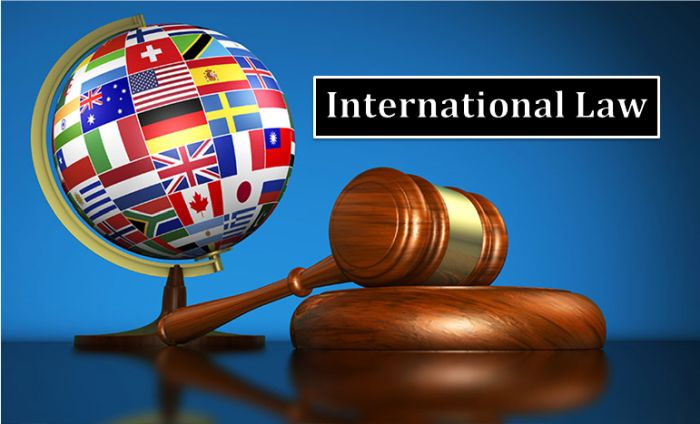
kemallawfirm.com 
decentralizedlegalsystem.com -
''Investigating and Prosecuting International Crimes'' is the second course in Leiden University's new series on International Law in Action. First-year students took a general introduction to The Hague's international courts and tribunals. An insider's view of how international criminal courts and tribunals operate is offered in this second course. You will gain knowledge of The Hague's investigation and legalization of global crimes.
Unimaginable acts of violence are the result of atrocities. You will examine whether and how international criminal justice contribute to the "age of accountability," as described by UN Secretary-General Ban Ki Moon. According to the theory, those who commit the worst human crimes are held accountable, regardless of whether they are top-level politicians or low-level military commanders, foot soldiers in the ranks or military commanders. You will investigate the feasibility of this and determine its viability.
You will get a chance to peek inside the "kitchen" of the Hague international criminal courts and tribunals during this course. You will gain knowledge of how the system works, the players involved, the results it yields, and suggestions for improvement.
This course is unquestionably for you if you want to learn more about international criminal cases like the Lubanga case, the ICC's first trial, and the legacy of the UN international criminal tribunals.
This course offers:
- Flexible deadlines: Reset deadlines based on your availability.
- Shareable certificate: Get a Certificate when you complete
- 100% online
- Approx. 17 hours to finish
- Subtitles: French, Portuguese (European), Russian, English, Spanish
Course ratings: 4.8/5
Enroll here: https://www.coursera.org/learn/international-law-in-action-2
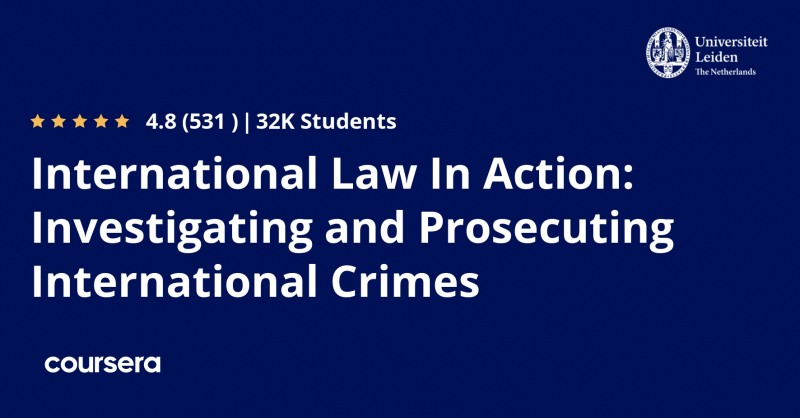
coursera.org 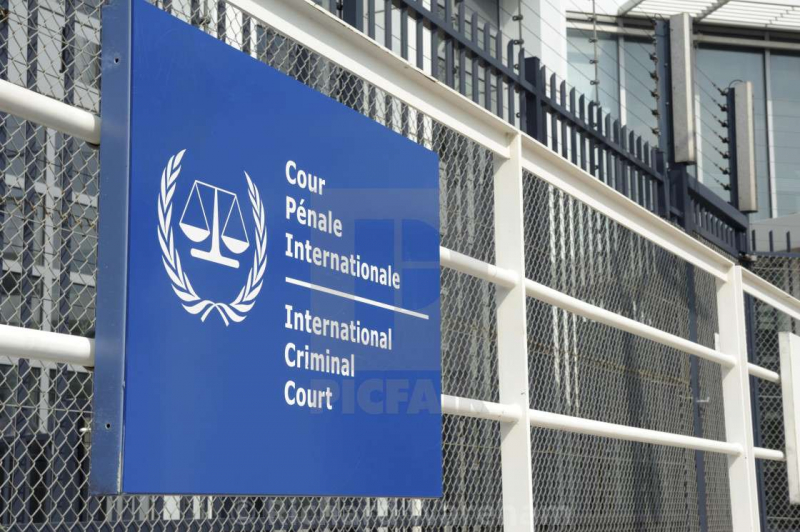
ejiltalk.org -
In order to account for the numerous new aspects of freshwater management and protection, international law has undergone a number of significant developments in recent decades. The adoption of global, regional, and basin-level instruments emphasizes how crucial it is to understand the development of international water law and to be able to pinpoint its key tenets.
The purpose of this course is to give students the background knowledge they need to comprehend and evaluate the regulations that apply to transboundary freshwaters, particularly to rivers, lakes, and aquifers. It outlines the legal guidelines and guiding principles that control how these resources are used, shared, managed, and protected.
There are 5 modules in the MOOC. The modules can be viewed in any order because each one focuses on a different theme. The modules do, however, adhere to a particular pedagogical logic, and learning them in order will be especially beneficial for those who are unfamiliar with the material. A test or questionnaire for module evaluation is included. Students who score an overall average of at least 80% on the tests will receive a certificate.
This course offers:
- Flexible deadlines: Reset deadlines based on your availability.
- Shareable certificate: Get a Certificate when you complete
- 100% online
- Intermediate level
- Approx. 10 hours to complete
- Subtitles: Arabic, French, Portuguese (European), Italian, Vietnamese, German, Russian, English, Spanish
Course ratings: 4.6/5
Enroll here: https://www.coursera.org/learn/international-water-law
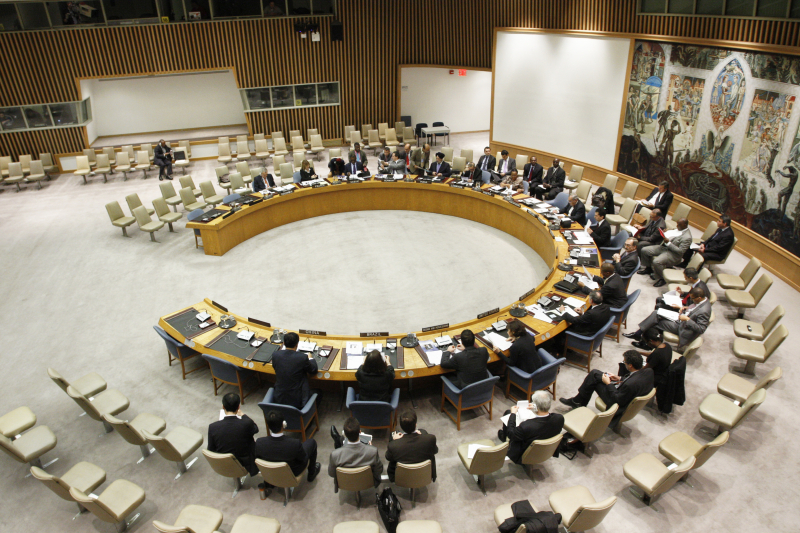
unitar.org 
istockphoto.com -
This course will cover the development of international criminal law and its core principles. The course uses the term "fundamental doctrine" to refer to the key terms and concepts needed to start the study of international criminal law.
You will learn the key terms, arguments against the existence of international criminal law, and how it relates to other legal disciplines like international humanitarian law and international refugee law here. Following your study of the Just War Theory, you will move on to the second section of the course, where you will learn about the development of international criminal law, starting with the years leading up to, during, and following the First World War, the Second World War, the Interwar years, the Cold War, and the Post-Cold War era.
The final key elements of the fundamental doctrine, the International Criminal Court, and the crimes covered by the Rome Statute—war crimes, the crime of aggression, genocide, and the crime against humanity—will all be covered after you complete this unit.
You will be able to establish a strong foundation for later delving into more details and depth on international criminal law on your own by doing this and with just two hours of lectures. You can get a free digital certificate of participation from PFW after finishing the course, and Udemy will also automatically renew your certificate of completion.
Who this course is for:
- Law students
- Political Science students
- Military Science students
- Professionals related to Law
- Anyone interested in the contents
Requirements
- Languages: English or Spanish (Incluye todas las clases y cuestionarios traducidos al español para estudiantes hispanohablantes)
Course ratings: 4.5/5
Enroll here: https://www.udemy.com/course/internationalcriminallaw/

blog.ipleaders.in 
nuals-seminars.com -
Are you a university student about to delve into the world of politics, trade, and international relations? Or perhaps you are interested in learning how a nation's many different cultures interact with one another. Understanding international law at a fundamental level is essential for both understanding your field of study and the world people live in.
This course is intended to provide an introduction to some fundamental ideas in international law for lawyers, law students, and just generally interested individuals. Harris Mahmood, a law graduate and private legal tutor from the University of Glasgow, is the instructor. He will walk you through the background and history of international law as well as explain why it is important to have an international legal system and how it differs from domestic law.
International Law will continue to be crucial in this new global society as the world becomes more interconnected and nations and cultures start to mix more frequently.
You will have a firm foundational understanding of international law by the end of this course. Additionally, it will be of great assistance to students planning to study international law at university as well as international relations, trade, or politics.
Who this course is for:
- Lawyers
- Law Students
- Masters Students
- Bachelor Students
- Undergraduate Students
- General Public
- PhD Students
- Employees of NGOs or Charities
Requirements
- Must be able to understand English
- Having previous knowledge of Law or legal systems is helpful but not essential
Course ratings: 4.3/5
Enroll here: https://www.udemy.com/course/introduction-to-international-laws/

news.usc.edu 
lawcorner.in -
The course will provide a functional understanding of International Legal Systems with special reference to Indian State Practices in International Relations. The course covers the first 400 years of the history of international law, starting in 1900, and details its advancements. The current international relations scene will be seen from above.
This course is specifically designed for Civil Services Aspirants and students taking the UGC NET (Law). For those who will be sitting for exams on international laws, this course is also crucial. In this course, there are two focused PowerPoints on the topic attached as reading material in addition to 380 minutes of video presented in 7 sessions lasting approximately 45 minutes each. The earlier blogs written by the instructors on international law are provided as additional reading.
The instructor does not assert to cover every aspect of the subject in detail. The learners are urged to read up on the basics of the subject before enrolling in the course. This course would be the perfect revision tool for law students taking university exams and those getting ready for competitive law examinations. The learner can anticipate being able to respond to many of the questions on the General Studies question paper because the course covers a lot of recent developments in international law.
Who this course is for:
- Aspirants for UGC NET (Law Exams)
- Indian Civil Services Exam Aspirants
- Students of Law
Requirements
- Desire and Interest to learn Law
- College Graduates
Course ratings: 4.1/5
Enroll here: https://www.udemy.com/course/public-international-law-module-1/
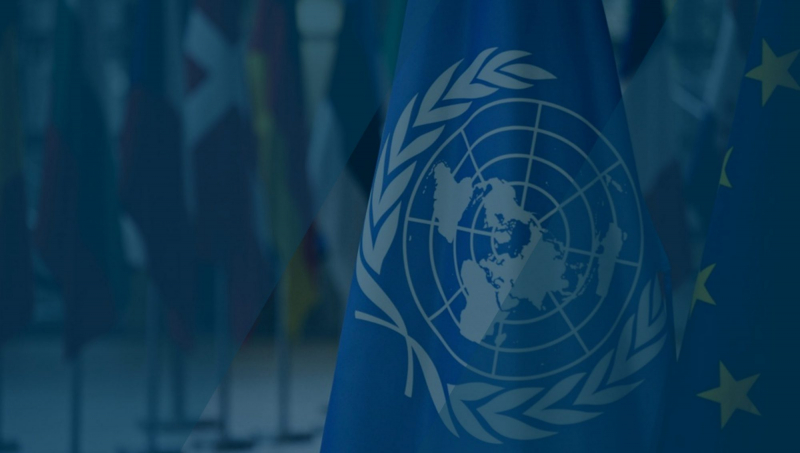
carter-ruck.com 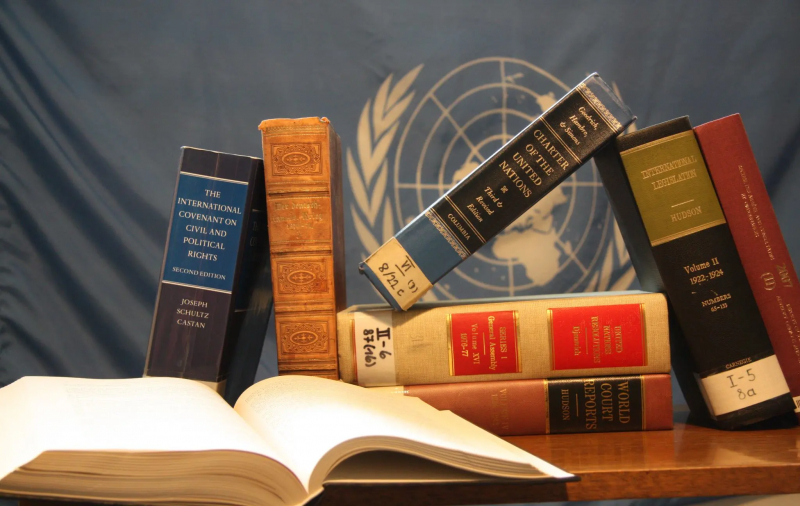
opiniojuris.org























